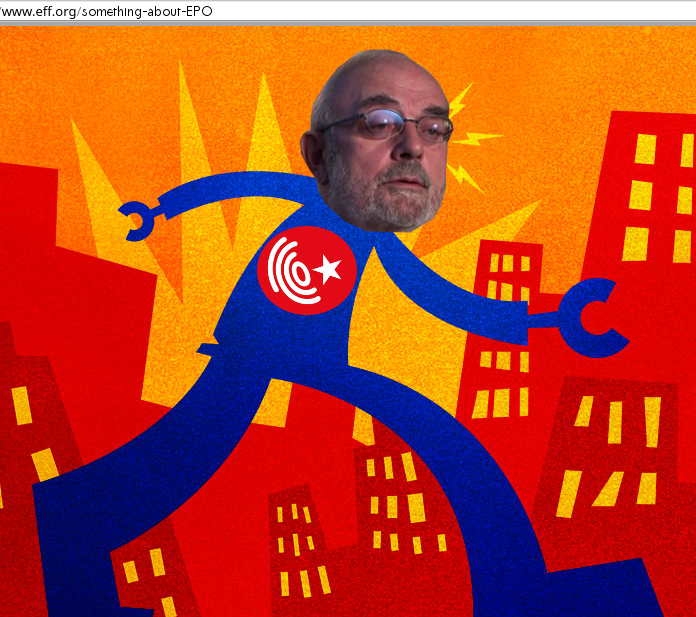

THE U.S. Patent and Trademark Office (USPTO) can issue software patents. Sometimes it does. But citing 35 U.S.C. ۤ 101, as courts often do, judges will throw out such patents. The patent maximalists are furious about it. How dare judges apply the law? They've already called for abolishment of the Patent Trial and Appeal Board (PTAB), nowadays they ask for the Federal Circuit to be disbanded and maybe SCOTUS is next. Who needs justice anyway? Mob rule, right?
"Who needs justice anyway? Mob rule, right?"At the EPO (Organisation) things are already profoundly upsetting. The rule of law is almost literally dead now (suicidal judges, due to threats and unjust punishment from Team Campinos/Battistelli). Nobody in the media wants to cover this anymore. Almost nobody! That in and of itself is a scandal -- a complicity in silence that we've often alluded to.
Science Business, which oftentimes is the European Patent Office's (EPO) mouthpiece [1, 2, 3], has just done some more EPO propaganda ("Source: The European Patent Office (EPO)"). No journalism involved and it's not even news: "Switzerland has most European patents per capita"
That just means Switzerland is a rich country, that's all. EPO numbers are used to convey old lies and myths. Do people know how much a single European Patent can cost? Can one expect an Estonian or an Ethiopian to apply for dozens of European Patents? They'd have to work for several years for just one patent (associated fees).
"When will the EFF make a comment about Europe and the EPO as well? Like it did the EU Copyright Directive..."Anyway, yesterday the EPO brought up (warning: epo.org link) the subject of software patents in Europe, calling them -- in the title -- "computer-implemented," as usual (the body says "computer-implemented inventions"). There's an upcoming case, but the judges lack independence. The President of the EPO (Campinos) knows it; he knows that he frightens them. So this is just the EPO pushing in the usual direction, i.e. to endorse illegal software patents (outcome may be 'fixed' like earlier this summer). In their own words: "The President of the EPO has filed his comments in the matter of the referral G 1/19 (“Patentability of computer-implemented simulations”) to the Enlarged Board of Appeal arguing for maintenance of the current practice for assessing the inventive step of computer-implemented inventions and welcomes the opportunity for the Enlarged Board of Appeal to further clarify the practice."
We don't expect software patents to make a comeback in the US. The Electronic Frontier Foundation (EFF) has just issued a statement [1] to drill another screw into the coffin of STRONGER Patents Act. Well done, EFF. When will the EFF make a comment about Europe and the EPO as well? Like it did the EU Copyright Directive...
The EFF cannot deny the fact that European and American patent laws -- or practices -- are connected (even their buzzwords). No excuse for the oversight. Do something, EFF. You are not understaffed, so don't make excuses. ⬆
Related/contextual items from the news:
Senator Chris Coons (D-Del.) has introduced yet another version of the STRONGER Patents Act. In 2017, we explained how earlier versions of the bill would gut inter partes review, a much more affordable way to challenge bad patents. The bill also tears down the Supreme Court’s eBay v. Mercexchange decision, which stops patent trolls from automatically getting injunctions, which gave them the power to potentially shut down productive companies. Unfortunately, these terrible ideas seem to keep coming back.
The STRONGER Act of 2019 contains numerous provisions aimed at killing inter partes review proceedings altogether. As we’ve explained before, inter partes review, or IPR, is a type of proceeding that lets people facing infringement allegations challenge bad patents in front of administrative judges with technical expertise—the Patent Trial and Appeal Board. These proceedings are much cheaper and faster than trials in federal court for both sides. They improve the patent system’s ability to promote innovation by providing an efficient way to cancel patents that should never have been granted in the first places.